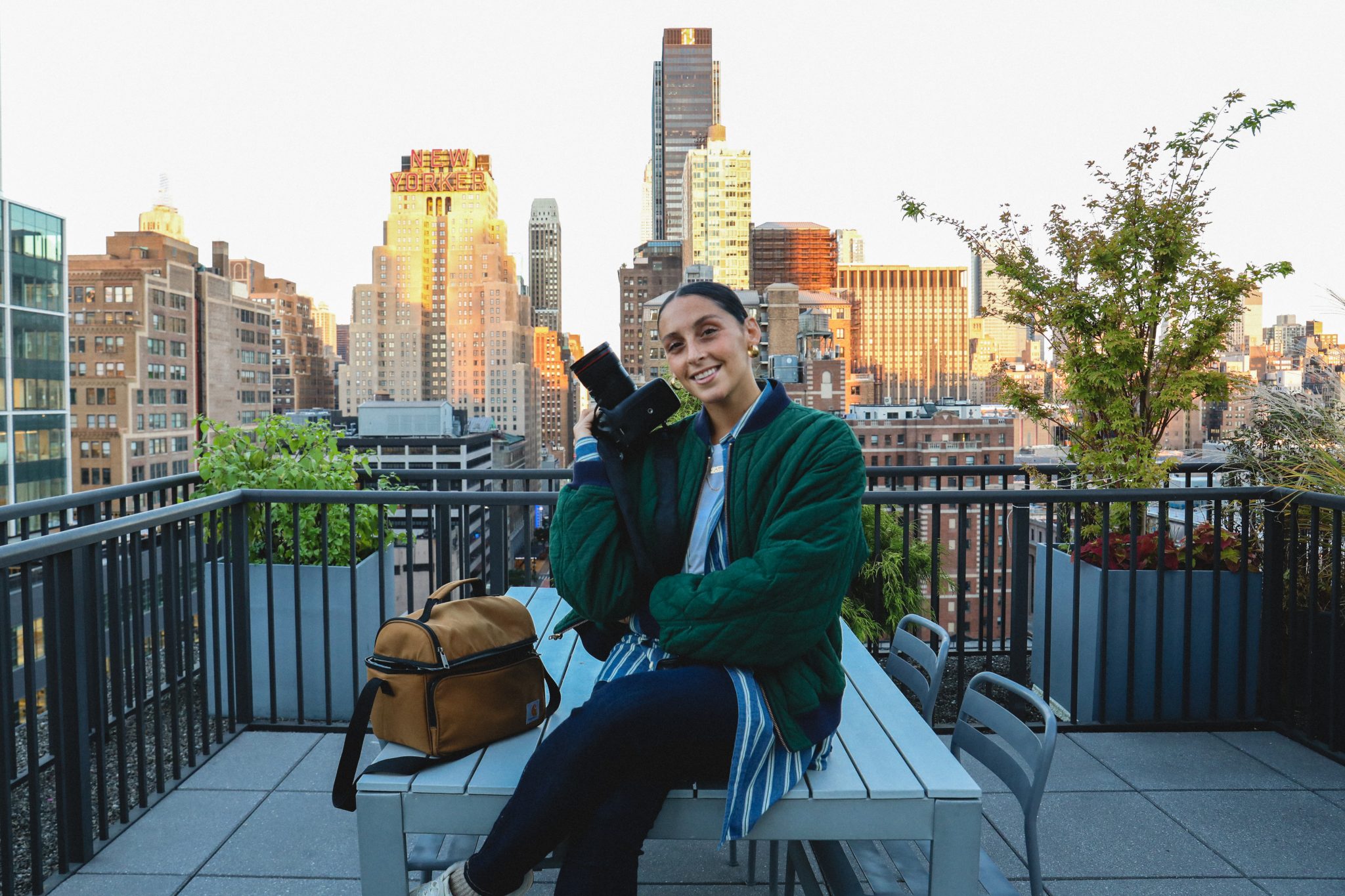By Pam Hersh
Since masks became part of my daily COVID makeup, I have joked how they made me look much better than any pre-COVID make up.
Masks cover up multiple signs of aging and imperfect features and are much cheaper than the countless creams and cosmetics I have purchased during my life. They also hide – I had assumed – any moods, such as irritability, fear, anger, stress and even an unimaginable burst of happiness.
Princeton native and professional photojournalist Laura Fuchs also loves masks – not for what they hide, but rather for what they reveal about a person. Since COVID began, Laura, refusing to get bogged down in the negativity of the pandemic, threw herself into a joyful photo arts project self-dubbed Mask Smile – taking pictures of New Yorkers smiling behind their masks. And in the process, her lens work captivated the camera lens of BBC and CBS television that recently featured the Mask Smile project.
“When I first started seeing New Yorkers wearing masks, I noticed most people were looking down, not making eye contact, and not smiling. I missed the social interaction and found myself trying to smile at people through my mask,” said Laura, who now is working in Manhattan as a staff photographer for CUNY TV (City University of New York Television).
“Once my masked smile was returned with a passing stranger’s smize (smile with your eyes!), I discovered that people could see my smile through the mask and moreover that I could see theirs. The Mask Smile project was born,” she said. “There’s something so sweet about walking down the street and exchanging a smile with someone through masks. The brief connection affirms a deep strength and resilience in people. …”
Certainly, there were times when people were too overwhelmed, preoccupied, and numb to smile. But when Laura was successful, it was “incredibly uplifting” to both the photographer and the subject of her photo. “The whole project has helped me to maintain a positive attitude and to continue to be grateful for every day,” she said.
I got to know Laura decades ago, before she started taking pictures, at a time when her parents were the ones taking pictures of her and her siblings. Her father Ira Fuchs and I shared an office suite at Princeton University. When Laura came to visit her dad at work, she would run into my office, because my office always was stocked with ample snacks, and a huge stuffed tiger sat on the couch. Her dad’s multiple computers and beeping pieces of equipment (he was vice president for Computing and Information Technology at Princeton University) “were not very interesting to me,” she admitted.
As she got older, Laura, a Princeton High School alumna, Class of 2005, often would return to the Princeton University campus – not for my snacks – but to take pictures. For four years, she documented the university’s Trash Art competition, one of the highlights of Princeton’s town/gown festival known as Communiversity.
“I can’t remember exactly when I was bitten by the photography bug, but remember always being fascinated with photo-taking even as a little kid. … My parents would give me disposable cameras to take on family vacations and class trips.” She said that by nature she is nostalgic and “always seemed driven by a compulsive desire to document” her memories and the people she encountered.
At Barnard College, Laura graduated in 2009 as a psychology major, which technically is not related to photography, but is related in that it reflects a fascination with people and a desire to understand them at a particular moment.
“My camera comes with me wherever I go. … I thrive off the human connection and it thrills me to be able to make someone comfortable enough to let me capture their essence.”
Aware that she is exceptionally lucky to have been able to convert her passion into a career, she is also aware how this passion has been a survival tool – actually a professional growth tool – during this pandemic. She now is looking at expanding her pandemic street art to capturing images of the street musicians, whose presence on New York streets has grown considerably as performance venues have disappeared.
Her joy is infectious – one infection that I would recommend to everyone during a pandemic. “Carrying my camera on me wherever I go encourages me to keep my eyes peeled for joyful moments. If you walk around with this mentality, you’ll find that there is beauty everywhere,” she said.

